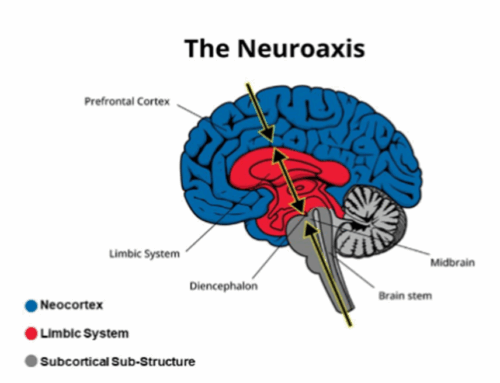It’s safe to say that human emotions are deeply intertwined with our personal relationships. Safe, supportive
relationships play a crucial role in regulating our emotional states, helping us manage stress, maintain conditions conducive to resilience, and experience well-being. The neuroscience behind this bonding reveals that secure connections with others influence our brain’s regulatory systems, fostering emotional stability and psychological health and well-being.
At a fundamental level, emotional regulation is governed by the brain’s limbic system. This system within the brain detects emotional stressors, triggering threat responses. However, this system does not operate in isolation—our social environment plays a key role in modulating these neural circuits. Safe relationships act as a buffer, providing co-regulation before self-regulation is fully developed, particularly in childhood.
Oxytocin, often called the “bonding hormone,” is released during positive social interactions, promoting feelings of trust and security. This neurochemical dampens the stress response by reducing cortisol levels, mediating the physiological effects of distress. Additionally, dopamine, which is linked to motivation and pleasure, is enhanced through supportive relationships, also reinforcing positive emotional states.
People with responsive relationships that help them to feel safe, learn to manage their emotions effectively, as their nervous systems synchronize with the other’s calm and soothing presence. Over time, these relationships create internal working models that shape and create conditions for emotional resilience.
Close relationships—whether with family, friends, or romantic partners—serve as emotional anchors. Safe relationships provide a “co-regulation” effect, helping individuals return to a baseline emotional state after stress. The presence of a calm and trusted person can neurochemically activate the parasympathetic nervous system, promoting relaxation and restoring emotional balance.
Conversely, volatile or unpredictable relationships can dysregulate emotional states. Prolonged exposure to emotional instability, can heighten reactivity in the brain’s limbic system, making emotional regulation more difficult. Individuals who lack safe, positive, growth-promoting, and adaptive relationships may struggle with heightened stress responses, difficulty managing emotions, and a resulting increased risk of mental health challenges.
Safe relationships are fundamental to emotional regulation, acting as external buffers that help individuals navigate life’s challenges. Through neurochemical support, co-regulation, and attachment security, these relationships shape emotional stability and help to engender resilience. Cultivating supportive connections is not only beneficial but essential for long-term psychological well-being.
Being mindfully aware of both the energy and tension states in which we find ourselves is instrumental in understanding our emotional states and resulting responses.
Cognitive Dynamics can change the way you think about it.






Leave A Comment